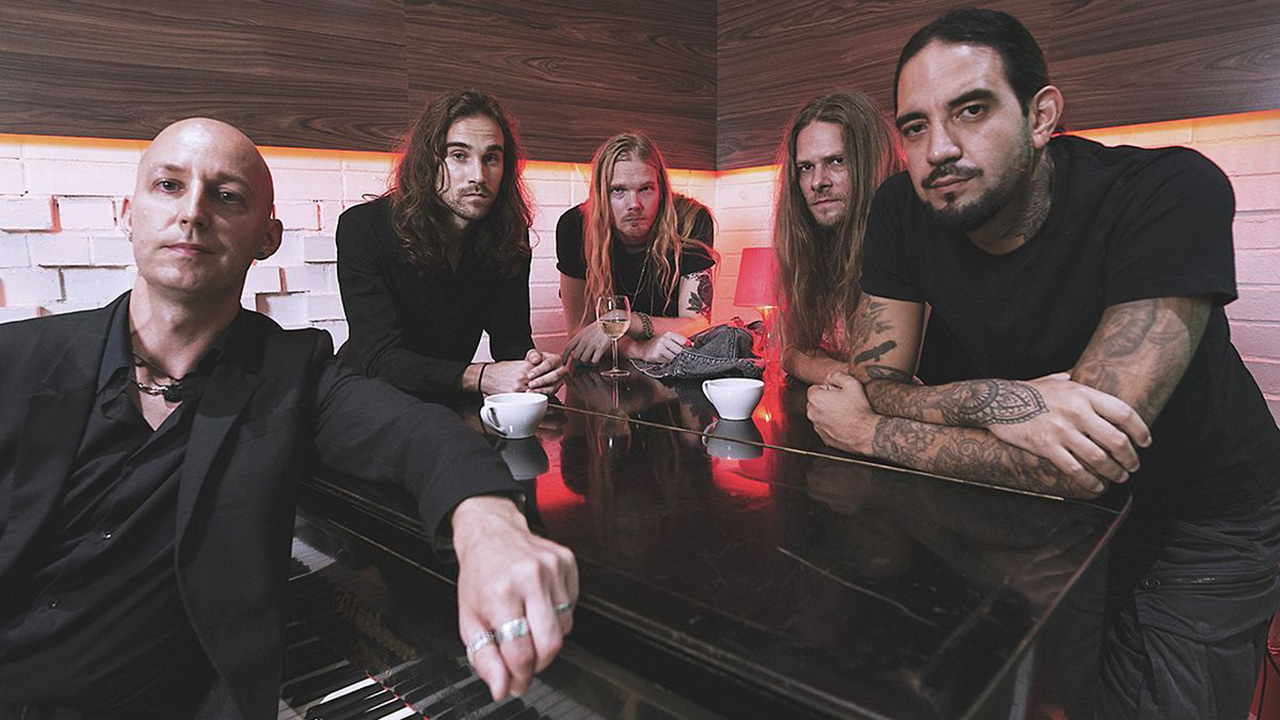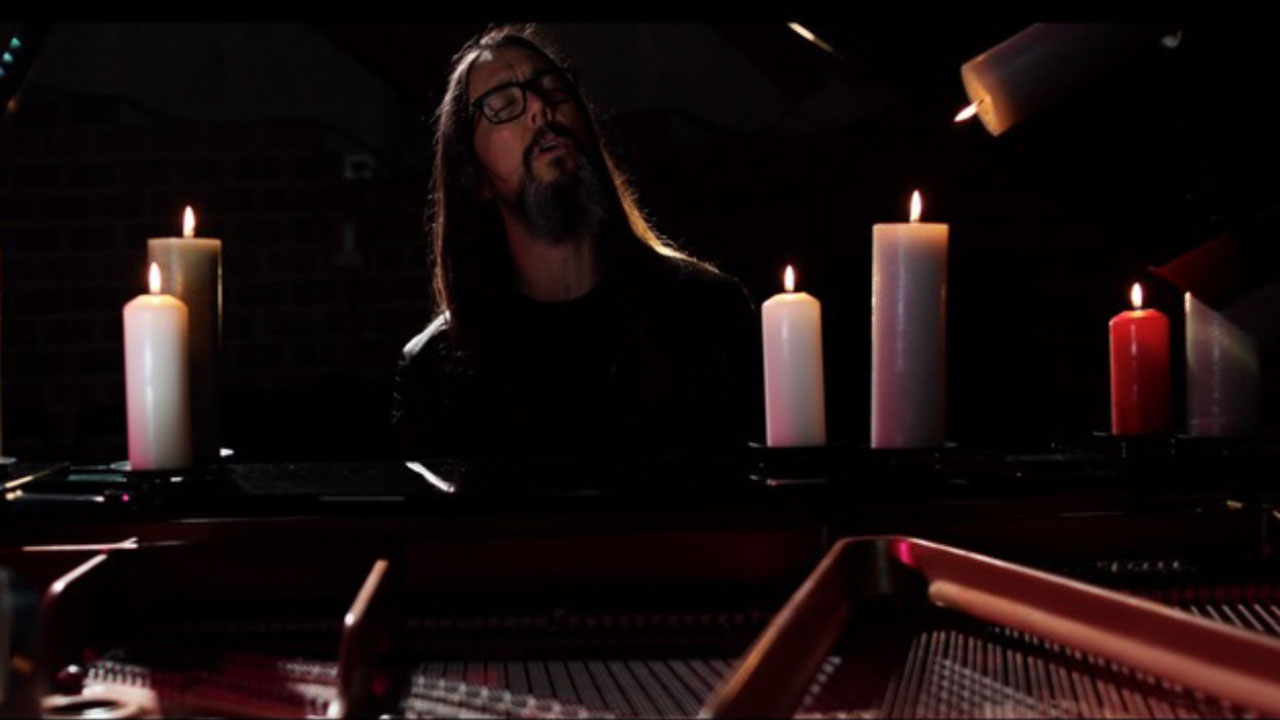“Some do yoga, take drugs or go to a football game and start a fight. Music is what we do”: Soen embedded modern truth and old-school songwriting in fourth album Lotus
Swedish prog metal supergroup on why they flew the flag for classic songwriting values and honest live performances with 2019 release

Music is to be taken seriously, Swedish supergroup Soen believe – and they illustrated their argument with their fourth album, Lotus. In 2019, tying in with its release, Martin Lopez and Joel Ekelöf told Prog about their intentions.
Today we’re able to instantly spread a message worldwide through our phones – yet we dread the idea of speaking to our neighbour next door. Our devices trick us into projecting a virtual, and often deceitful, image of ourselves while we detach from our genuine selves.
The topic is explored on Swedish prog metallers Soen’s fourth album, Lotus. Drummer Martin Lopez and singer Joel Ekelöf are eager to explain their message.
“People’s confidence depends on what others think of them, instead of what they’re capable of,” drummer Martin Lopez says. “Kids are constantly judged because of social media. At the same time, culture disappears, because social media takes over the time that we could spend reading a book or listening to music.”
Vocalist Joel Ekelöf adds: “People go to new places just to take the perfect Instagram picture and Facetune it to make a perfect image of themselves; then they want to live up to that image. That’s unhealthy. What we want to get through is that if you try to be true to yourself – stand up for yourself, instead of being evaluated by others – you’ll feel you have self-value.”
While exploring the darkest twists and turns of society, Soen always try to find a semblance of hope – hence the album’s title. “The lotus is something beautiful that grows up in the mud,” Ekelöf explains. Their duality is explored both musically and visually: the sleeve art depicts a copper pyramid, and within it a series of symbols and their opposites, creating a strong sense of contrast.
“That’s has always been part of our music,” Lopez says. “Dynamics – hard parts mixed with mellow, the tense parts and the soothing parts – like a sort of yin and yang. In the past people used symbols much more. I can only take Sweden as an example, but my grandparents knew what symbols stood for and they’d use them as guides. We’ve totally lost this.”
Sign up below to get the latest from Prog, plus exclusive special offers, direct to your inbox!
The album definitely has that sort of Pink Floyd vibe, which I love
Martin Lopez
The album is intended to make personal connections through the band’s self-analytical lyrics. “We’ve all gone through a lot of shit,” Lopez says. “You start talking to your friends and family about it, then you try to channel it somehow. Music is the best way to do it, both writing lyrics and playing. It’s the same way some people do yoga or take drugs or go to a football game and start a fight. This is therapeutic for us.”
Lotus was excellently produced by David Castillo, who worked with Soen on their previous album, Lykaia. “We gave him free hand to use whatever he needed, mixing up both analog and digital equipment, but always keeping the live sound of the band, because it needed to be raw,” Lopez explains.
Ekelöf adds: “We had a really clear picture about what we wanted to do with the songs, but we gave David the possibility to elaborate on our ideas. We told him what kind of sound we wanted and how the songs were supposed to be. He’s been able to influence how we could get to our ideas.”
Despite defining themselves as a heavy band, Soen’s music is rooted in more traditional prog sounds. You can feel Pink Floyd in the quieter tracks of the album like Lotus or Covenant. Lopez agrees: “We listen to all kinds of music along with prog. To be a complete musician you need to listen to everything that’s good. The style of our guitar player is very David Gilmour-ish and the music structures are made for that kind of melodic guitar playing, so the album definitely has that sort of Pink Floyd vibe, which I love.”
A lot of bands are commanded by computer… you could have just stayed home and listened to the album
Martin Lopez
“The old prog is still very relevant – Jethro Tull, Yes, Genesis, Pink Floyd all have strong songs and melodies,” Ekelöf says. “Their style feels like going on a musical adventure. That kind of prog is the kind I can relate to, more than modern bands who are very focused on technique.
“We’re not inspired by that fast, technical ‘look-what-I-can-do’ kind of prog,” Lopez says. “We go for emotion in music and put value in the music we make. We have a modern approach to our sound, which has to be bass- and drum-driven – but at the same time we get a lot of the melodies and warmth from music from the 70s.”
Those considerations carry into live performances, he explains. “A lot of metal bands are commanded by a computer. The drummer follows a click track and everything is so perfect that you could have just stayed home and listened to the album. We go up there and we do make mistakes; we go slower sometimes, faster sometimes.
“But that’s the essence of being a musician – to play what you feel that night for your audience and make it special, because they’re not going to hear that show again. If you play with backing tracks and follow a click track, you play the same boring, essence-less show every night.”
If you’re not serious in your music, you cannot be honest
Martin Lopez
“I hope we can show young kids an alternative,” adds Ekelöf. “If they come to one of our concerts, they’ll see real musicians playing live music, for real, without backing tracks; no bullshit. Some kids have never heard live music – they go to DJ sets instead.”
Lopez notes: “When you’re serious – like we are – you open the doors for people to judge you and complain about you, because it’s you: this is what you are, this is what you believe in, this is what you’re saying
“If you’re always silly and joking around, you’re showing that either you have nothing to say, or you don’t dare to say it. If you’re not serious in your music, you cannot be honest. And when you’re honest with your music and your lyrics, that’s when you can start making people feel something real.”



